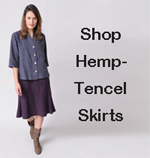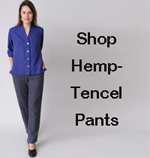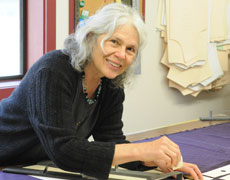Inconvenient fast-fashion truth & why eco-friendly hemp clothes are the fix
Posted by Rose on 1st Aug 2024
The rising popularity of eco-friendly clothes made from hemp points the way to more sustainable and ethical fashions.
When we shop for clothing, soil isn’t likely to be on our minds. Yet clothes have a powerful impact on the Earth’s soils and water. Why the quality of our soil and water is deteriorating is intimately tied up with the cotton, wool and leather goods populating our closets.
A roots-up approach to agricultural change
When it comes to the food and water we consume, connections with the health of our soil and water are pretty easy to make. Master chef Dan Barber’s excellent book, Third Plate, offers a different way of looking at food, questioning the ways in which we currently raise, prepare and select what we eat.
Barber advocates for more than simply the farm-to-table movement that has begun taking hold in this century. What he offers is more profound—a radical, from the roots up agricultural philosophy intended to antidote the harms caused by modern agricultural practices.
Synthetic fertilizers and pesticides affect all forms of life negatively
As Barber explains, the rise of agribusiness and the ironically named "Green Revolution" of the 1950s has in just a few decades severely degraded our soil. Through copious administration of synthetic fertilizers that contain only nitrogen, potassium and phosphorous—and none of the other essential trace elements and minerals needed for plant life—our soils have become dependent on ever-increasing amounts of chemicals. This, coupled with the use of pesticides and herbicides in huge agribusiness fields, threatens all forms of life on our planet while also robbing our food of its nutrition and taste.
Working intimately with farmers around the world, Barber presents alternatives that entail using traditional methods and careful observation to work a truly green revolution in the way we raise food.
There’s hope, but it’s no sure thing
But Barber’s the first to say that reverting to traditional crops and ways of animal husbandry is no sure thing. At least not in the short term and not unless we’re willing to harness some of the same ingenuity we’ve poured into technology in order to create sustainable agricultural systems.
The self-sustaining ecosystems he describes in Third Plate have been centuries in the making and they’re dependent on continued careful observation by the farmers who work them. As he says, even the most sustainable farm "unravels with just a few shortsighted decisions.”
Clothes made from hemp could be one of the solutions
Thankfully, when it comes to transitioning to more sustainable agricultural models, the hemp and Tencel blended into Sympatico’s fabrics don’t pose quite the challenges that our food crops do. Neither the hemp nor farmed eucalyptus trees used in Tencel require either pesticides or artificial fertilizers. And hemp actually remediates soil damaged by modern agricultural practices by aerating and anchoring it.
Hemp also returns nutrients to the soil when it's traditionally retted. Retting entails spreading the cut stalks on the ground allowing them to remain there while bacteria separates the plant material from the bast fiber that will be spun into fiber.
Our closets connect directly to our Earth.
See our selection of clothes made from hemp: tops and blouses, skirts and pants.
Share:







